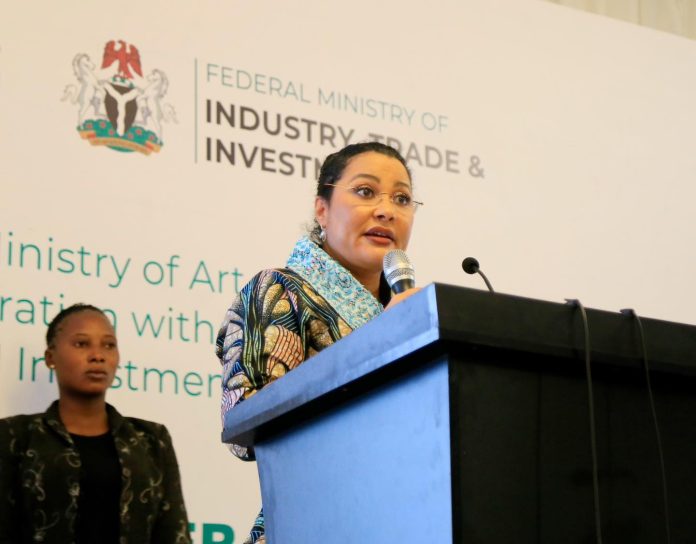The Federal Government of Nigeria is intensifying its efforts to protect intellectual property rights with the revalidation of the National Intellectual Property Policy and Strategy Paper. Spearheaded by the Federal Ministries of Industry, Trade and Investment, Culture and Creative Economy, in collaboration with the Federal Ministry of Justice and the Federal Ministry of Health and Social Welfare, this initiative aims to produce a comprehensive policy document that will effectively safeguard the intellectual assets of Nigerians.
At a one-day workshop organized to discuss the policy, Dr. Doris Anite, Minister of Industry, Trade and Investment, emphasized the importance of this revalidation process. “Although the document was finalized in 2022, revalidation is necessary to address grey areas and incorporate emerging trends in intellectual property rights, ensuring alignment with global best practices,” Dr. Anite remarked during her opening speech. She further underscored the significance of intellectual property (IP) protection for the nation’s economic growth and development, highlighting that such a policy provides clear direction on ownership rights to original inventions, innovations, and creative works. “This mitigates financial risks while maximizing the benefits of commercialization,” she added.
Dr. Anite also assured that President Bola Ahmed Tinubu’s administration is fully committed to upholding the intellectual property rights of Nigerians, underscoring the administration’s dedication to protecting and promoting local innovations.
In support of this sentiment, Hanatu Musawa, the Minister of Culture and Creative Economy, stressed the timeliness of the revalidation and the imminent launch of the updated policy. “Nigeria is globally recognized for its intellectual prowess across various fields. It is crucial to establish a solid national intellectual property policy that protects our innovations,” she said. Musawa also pointed to the wide array of Nigerian contributions, from new medicines and industrial processes to music compositions and literary works, as key pillars that enrich society. “Our culture, traditions, food, and produce need protection and marketing, which requires robust policy support,” she affirmed.
Ambassador Nura Rimi, Permanent Secretary of the Federal Ministry of Industry, Trade and Investment, praised the dedication of all stakeholders involved in the revitalization of the policy. He noted that the revised policy framework would address pressing issues such as piracy and intellectual property theft, both of which have long plagued various sectors of Nigeria’s economy. “It is essential for Nigeria to have a comprehensive and effective policy to protect and promote our intellectual assets,” Rimi said.
The workshop also served as a platform to validate the review conducted by inter-ministerial committees established by the Ministers of Industry, Trade and Investment, and Culture and Creative Economy. The final version of the policy will be presented to the Federal Executive Council for approval.
Development partners who attended the workshop’s opening session unanimously supported the revalidation effort. They highlighted the importance of a formidable intellectual property protection policy for a country like Nigeria, which is widely recognized for its talent and innovations on the global stage. The new policy document is expected to be launched in the third week of October, marking a significant milestone in Nigeria’s journey towards safeguarding its intellectual capital.
Dr. Adebayo Thomas, Director of Press and Public Relations for the Federal Ministry of Industry, Trade and Investment, confirmed the commitment to advancing Nigeria’s intellectual property framework as a key driver for economic growth and sustainable development.




